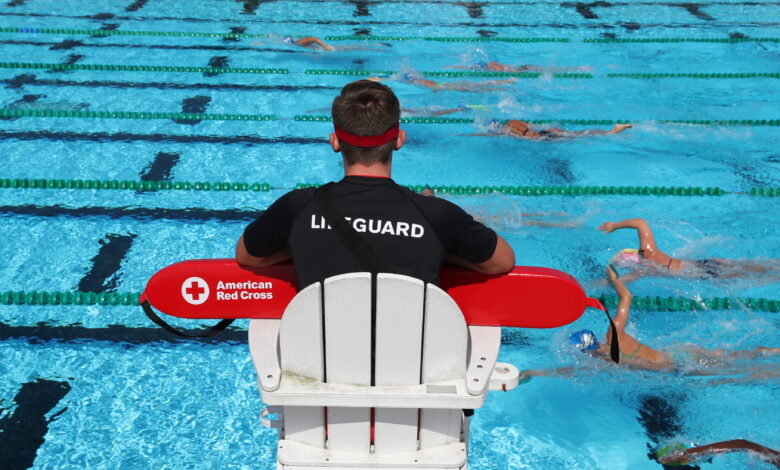Lifeguard training isn’t just about learning to save lives — a complete excursion moulds people into mindful, quick-thinking, and disciplined professionals. From the underlying lifeguard classes near me to the perfection in lifeguard certification, this cycle isn’t only about getting skills but also about creating character attributes that are essential for the outcome of this critical role.
Discipline and Responsibility: The Establishment
At the core of lifeguard training lies discipline. Up-and-comers are shown the significance of dependability, mindfulness, and adherence to protocols. Whether it’s showing up on time for lifeguard classes near me or observing severe safety rules during practical meetings, discipline shapes the groundwork of a lifeguard’s personality. This feeling of discipline stretches out past the training pool, impacting how lifeguards approach their responsibilities and commitments in all parts of life.
Decision-Making Under Tension: Exploring Critical Minutes
Lifeguards frequently wind up in high-pressure circumstances where speedy and exact choices can mean the difference between life and demise. Lifeguard training is intended to reenact these situations, putting competitors under pressure to survey risks, focus on actions, and execute rescue protocols swiftly and actually.
These encounters improve their lifesaving abilities as well as upgrade their capacity to make good decisions under tension, a skill that is important both professionally and by and by.
Physical and Mental Wellness: The Double Concentration
The thorough idea of lifeguard training requires an elevated degree of physical and mental wellness. Applicants go through serious swim tests, perseverance exercises, and reproduced rescue drills to develop fortitude, stamina, and spryness.
Furthermore, they are prepared to keep up with mental concentration, remain alert for broadened periods, and oversee pressure successfully. The blend of physical ability and mental versatility allows lifeguards to deal with the requesting idea of their role with confidence and skill.
Teamwork and Communication: Cooperative Endeavors
Lifeguards seldom work alone; compelling teamwork is essential for effective rescues and pool management. Lifeguard training underlines the significance of clear communication, common help, and composed action inside a team.
Competitors learn to believe their kindred lifeguards, delegate undertakings proficiently, and impart critical data seamlessly, cultivating a culture of collaboration and union that is crucial in crisis circumstances.
Initiative Skills: Directing and Motivating Others
Past being skilled rescuers, lifeguards are likewise expected to show initiative characteristics. Lifeguard programs remember modules for administration development, where competitors learn to show others how it’s done, motivate confidence in their team individuals, and assume responsibility during emergencies.
These authority skills improve their adequacy as lifeguards as well as set them up for influential positions in different professional settings.
Versatility and Flexibility: Exploring Difficulties
Lifeguarding is a dynamic and erratic field, expecting lifeguards to adjust rapidly to changing conditions and startling difficulties. Lifeguard training opens the possibility to assorted situations, from unfriendly atmospheric conditions to changing pool designs, helping them to think and react quickly and change their techniques likewise.
The capacity to stay versatile and adaptable is a sign of an able lifeguard, empowering them to answer successfully to developing circumstances with confidence and self-restraint.
Sympathy and Empathy: Interfacing on a Human Level
While technical skills are crucial, lifeguarding is eventually about focusing on individuals in trouble. The training underscores the significance of sympathy and empathy, helping contenders to move toward each circumstance with responsiveness and understanding. Lifeguards learn to interface with people on a human level, giving consolation, backing, and solace during emergencies and ordinary interactions.
Moral Lead and Trustworthiness: Maintaining Professional Standards
Honesty is at the centre of lifeguarding. Up-and-comers go through training on moral direction, privacy, and maintaining the trust of those they serve. Lifeguard training imparts a strong feeling of obligation towards maintaining professional standards, focusing on safety over private inclinations or predispositions, and acting with trustworthiness and honesty in all circumstances.
Persistent Learning and Improvement: A Lifelong Excursion
The training doesn’t end with certification — it denotes the start of a ceaseless learning venture. Lifeguards are urged to participate in continuous training, skill development, and situation-based drills to remain current and capable in their roles.
Lifeguarding organizations like the American Lifeguard Association play a crucial role in giving resources, backing, and opportunities for lifeguards to improve their knowledge, skills, and professionalism throughout their careers.
Conclusion: The Effect of Lifeguard training
In conclusion, lifeguard training is a groundbreaking encounter that goes past technical capability — it shapes people into strong, sympathetic, and viable lifeguards. From imparting discipline and responsibility to encouraging teamwork, authority, and sympathy, lifeguard training builds character qualities that are essential for progress both in lifeguarding and in life.
The commitment to constant learning, moral lead, and professional greatness guarantees that lifeguards maintain the best expectations of safety and administration, having a constructive outcome on the networks they serve.
Through organizations like the American Lifeguard Association, lifeguards get complete training and backing, empowering them to satisfy their lifesaving mission with skill, honesty, and relentless commitment.
